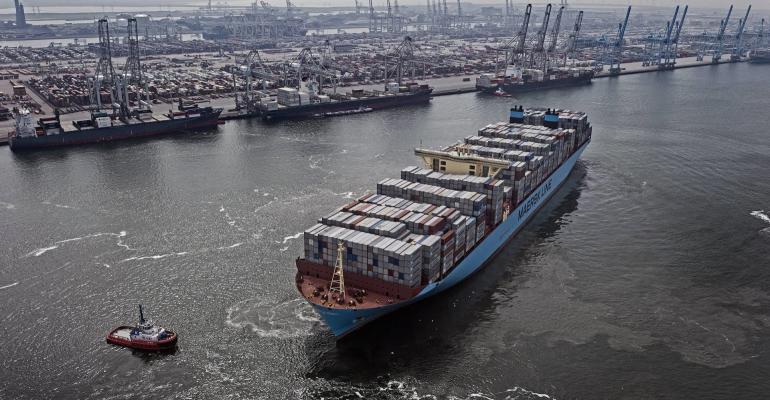The group said all historical and future ocean weather observations will be made public domain and free to use by the global scientific community via the UNESCO and World Meteorological Organization’s Global Ocean Observing System (GOOS).
“The data which has been collected by Maersk vessels since 2012 increases publicly available ocean weather data by 28%,” said Maersk.
The data will help in weather and climate modelling, plugging a gap in available ocean data where satellite observatiosn have limitations and on-location coverage is poor. A better understanding of the state and development of ocean conditions over the past decade and its interaction with the atmosphere will help to improve predictions.
“As a member of the scientific community, I am thrilled that we get access to this unique data set. The data will help to better constrain past ocean surface conditions but also help to improve future predictions - from weather to climate,” said Dr. Johannes Karstensen of GEOMAR, the Helmholtz Centre for Ocean Research in Kiel, Germany.
Maersk's 300 owned vessels share a total of over 7,000 observations per day. Some vessels have live data feeds to weather organisations, and several have Automated Weather Stations installed for taking research-grade measurements under a collaboration with Germany’s National Meteorological Society.
Aslak Ross, Head of Marine Standards at Maersk said: “Climate change is without doubt one of the biggest challenges the global community is facing, and we have set an ambitious strategy for our business to achieve net zero greenhouse gas emissions in 2040, but we have also as a part of our ESG strategy committed ourselves to contribute to climate and ocean science with data gathered from our vessels.”
Maersk recently accelerated its net zero-emissions operational target by a decade and has benefited from strong profits as container rates soared globally on supply chain disruption and changing consumer demands.
Copyright © 2024. All rights reserved. Seatrade, a trading name of Informa Markets (UK) Limited.
Add Seatrade Maritime News to your Google News feed.  |

